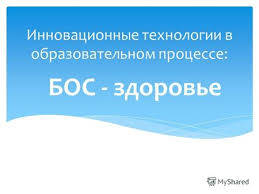Brief Solution: In purchase to register under Chapter 7, your revenue needs to be lower than the median earnings in their state of Minnesota or Wisconsin. In the event that you qualify, your debt that is unsecured cards, medical bills, and particular types of loans — should be destroyed.
In a Chapter 13 bankruptcy, the debt is restructured relating to a repayment plan decided to by the creditors. A trustee is appointed because of the court, tasked with ensuring you create re re payments on some time creditors get a share of what they’re owed during the period of 3 or five years.
Can I need to go to court once I file bankruptcy?
Brief response: In bankruptcy cases that are most, you merely need to visit a proceeding called the “meeting of creditors”, which will be a brief and easy conference where you stand expected a couple of questions by the bankruptcy trustee. The meeting doesn’t take place in a courtroom while the meeting is held at the courthouse.
Sometimes, if problems arise, you may need to appear at a hearing in the front of a bankruptcy judge. In a Chapter 13 case, you might need to appear at a hearing once the judge chooses whether your plan must be approved (although in Minnesota that isn’t really often). You will receive notice of the court date and time from the court or your attorney who will help you prepare for your appearance if you need to go to court.
Could I possess such a thing after bankruptcy?
Brief response: Absolutely! This is certainly one of the countless “urban legends” that surround bankruptcy. People think they can not obtain such a thing for some time after filing for bankruptcy. You are able to maintain your property that is exempt and you have following the bankruptcy is filed. However, in the event that you get an inheritance, home settlement, or life insurance policies within 180 days after filing bankruptcy, that money or home might have to be given to creditors in the event that home or cash is perhaps perhaps not exempt.
Just just What home may I keep if we file Bankruptcy?
Quick response: Both Minnesota and Wisconsin enable you to select either Federal exemptions that are set down in the Federal Statues or state exemptions that are presented by state legislation. Bankruptcy exemptions figure out what home you’ll and should not keep once you file bankruptcy.
In a Chapter 13 instance, you’ll keep your entire home so long as you maintain to cover any loan you’ve got against it or spend the trustee at the very least the non-exempt worth of all of your assets.
In a Chapter 7 instance, you are able to keep all home this is certainly “exempt” (protected) through the claims of creditors. Therefore, in the event that home where you have equity comes for the main benefit of creditors, the exempt amount must be provided with back into you. If the home is worth not as much as the bankruptcy exemption, but, it shall https://badcreditloans4all.com/payday-loans-ms/senatobia/ never be offered and you will certainly be permitted to ensure that it it is.
An alternative choice that the attorney will talk about is attempting to sell any non-exempt home before we file your petition after which making use of the money through the purchase in a manner that is appropriate. In that way, you’re able to keep consitently the value associated with piece that is unprotected of. You really need to communicate with legal counsel before you offer or hand out any home before you file bankruptcy. Simply it doesn’t mean that the trustee can’t get it because you no longer possess.
What the results are to a co-signer once I file bankruptcy?
Brief response: If some body cosigned a loan for your needs, she or he will still be regarding the hook if that loan is eradicated in bankruptcy and certainly will need to pay the mortgage. This might cause in your relationship if your cosigner is a relative, you can imagine the stress. You want to protect, you’ll need to consider negotiating an alternative payment plan with your creditor or filing Chapter 13 bankruptcy if you have a cosigner.
Are you experiencing more questions? Get in touch with us at (651) 309-8180 for the free summary of your situation.









